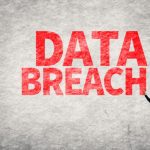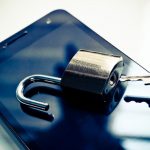No backdoors thanks, we're Dutch

Unlike other countries, notably the UK and China, that have been busy passing laws to allow them to snoop on encrypted communication, the Dutch government has decided that strong encryption is vital to the health of its digital economy and the privacy of its citizens.
The country's minister of security and justice Ard van der Steur writes in an official statement that the Dutch executive cabinet endorses, "...the importance of strong encryption for Internet security to support the protection of privacy for citizens, companies, the government, and the entire Dutch economy. Therefore, the government believes that it is currently not desirable to take legal measures against the development, availability and use of encryption within the Netherlands".
US is spying on its allies for 'national security' purposes

Even though US president Barack Obama promised to end the eavesdropping on highly-positioned officials among US allies, which was revealed during the Edward Snowden events, it seems that some officials are still under close watch by the NSA.
Among those is the prime minister of one of US' biggest allies -- Israel. According to a Wall Street Journal report, the White House decided to keep certain high-ranking officials under close watch, including Netanyahu and Recep Tayyip Erdogan, president of Turkey.
Clueless UK government wants you to help define its digital strategy

The UK government has been heavily criticized for the way it is attempting to control the way in which people use the internet -- blocking porn, unfettered surveillance and so on. The snooper's carter in particular has been the subject of much disapproval, and in an apparent bid to avoid further complaints, the government is now crowdsourcing ideas for internet policies.
In an article entitled UK Digital Strategy - the next frontier in our digital revolution (a document replete with language and references akin to an elderly parent talking about some aspect of modern culture they don't quite understand), Digital Economy Minister Ed Vaizey explains that he is looking for "ideas from public and industry on the UK's digital strategy".
Microsoft will offer custom Windows 10 to the Chinese government

Microsoft has signed an important deal with the Chinese government, one which will see the American company deploy its latest operating system directly to the government agencies.
The Verge has reported how the Redmond-based software company will deploy a customized version of Windows 10 to the Chinese government through a newly-formed company called C&M Technologies.
The biggest data breaches of 2015

10Fold recently evaluated the seven largest breaches this year and found that hackers had absconded with more than 193.4 million personal records. To get to this figure, the agency reviewed 720 data breaches that occurred throughout the year. To narrow the list to a more manageable size, the team made five million the barrier to entry.
10Fold selected these data breaches based on independent research and review of third-party resources such as ID Theft Resource Center and Information is Beautiful.
New endpoint protection offers government users security for the public cloud

Use of the public cloud is on the increase but in some sectors such as government agencies is being held back by security concerns.
Data protection specialist Druva is announcing that it's launching a new endpoint solution that is Federal Information Processing Standards (FIPS) compliant.
Twitter will notify users of government-backed hacker attacks
Twitter is joining the Google - Facebook bandwagon, as it has started warning its users that they may be potential targets for "state-sponsored" hack attacks.
Canadian non-profit organization Coldhak has tweeted a copy of an email it has received from Twitter, warning it about a possible cyber-attack.
Google can remotely reset your Android passcode

A common recommendation for securing a mobile device is to set up a passcode. Having a PIN or password will make it harder for a third-party to have access to personal information, which lowers the chances of data theft or loss but also incrimination or blackmail.
But, when that third-party is a government agency looking to retrieve data from someone's Android device, it might be easier than you think to get in. On top of all the resources they have at their disposal, government agencies can also turn to Google to have the passcode remotely reset.
Tim Cook: Apple won't weaken encryption, but is willing to cooperate with UK government
Tim Cook: We shouldn't have to choose between privacy and security

In a debate held on Monday, Apple’s CEO Tim Cook argued with government agencies over privacy and backdoor issues once again, stressing that a backdoor is not a good solution.
According to a Bloomberg report, he squared off with NSA Director Admiral Michael Rogers at the Wall Street Journal Digital Live technology conference in Laguna Beach, California.
US government to invest $20 million to drive fuel cell development

The U.S. Energy Department has announced it will invest more than $20 million (£12.9m) in the fuel cell and hydrogen technologies industries, following the revelation that the industry is basically exploding.
A total of 10 projects will be funded, aiming to advance fuel cell and hydrogen technologies and to enable early adoption of fuel cell applications such as light-duty fuel cell electric vehicles (FCEV).
US has no plans to impose encryption backdoors

US President Barack Obama’s administration will no longer pursue legislation which allows the government to legally spy on its citizens, Reuters reported on Monday.
A White House spokesperson confirmed the move, announcing a change in strategy for the US government, where it will go for a more patient approach.
UK Government's free Wi-Fi initiative benefits 3 million public transport users

The government has been busy boasting about its SuperConnected cities project, and how many people it’s benefiting with free Wi-Fi.
The scheme has seen the introduction of free Wi-Fi on buses, trams and trains in various UK cities, and apparently over 3 million unique users have made regular use of the wireless connections while traveling.
People trust governments with their data, but not private companies

Here’s a plot twist: despite everything that’s been going on with governments spying on other governments and people, despite countries looking to ban encrypted communications apps and generally fighting against encrypted communications, people still trust the government with their data more than private service providers.
Those are the results of a survey made by secure Swiss-based data center provider Artmotion. It surveyed more than 1000 citizens in the US, Europe, Russia and Australia.
UK businesses warned of growing cyber risk

We reported back in July on the UK government's plans to help small businesses boost their cyber security. Today enterprises across the country are being urged to protect themselves by taking up the government's Cyber Essentials scheme.
Whilst £1 in every £5 earned by UK businesses now comes from the Internet, cyber attacks are considered a serious threat. The latest figures reveal that 74 percent of small businesses and 90 percent of major businesses have had a cyber breach of some sort in the last year.
Recent Headlines
Most Commented Stories
BetaNews, your source for breaking tech news, reviews, and in-depth reporting since 1998.
© 1998-2025 BetaNews, Inc. All Rights Reserved. About Us - Privacy Policy - Cookie Policy - Sitemap.